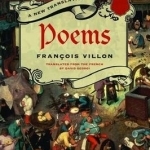
Veganagogo Vegan Travel
Travel and Food & Drink
App
Veganagogo is a fun and easy way to communicate your vegan dietary requirements almost anywhere in...

Zola and the Victorians: Censorship in the Age of Hypocrisy
Book
London, 1888: Jack the Ripper stalks the streets of Whitechapel; national strikes and social unrest...

Metamorphoses of the Vampire in Literature and Film: Cultural Transformations in Europe, 1732-1933
Book
For the last three hundred years, fictions of the vampire have fed off anxieties about cultural...
Violeta Parra: Life and Work
Book
The Chilean artist Violeta Parra (1917 - 1967) is a cultural icon in Latin America. Parra is best...
Hazel (1853 KP) rated The Poisoning Angel in Books
Dec 17, 2018
Some people may already know of the prolific French serial killer of the 1800s. Hélène Jégado, over a lengthy period of forty years, is thought to have murdered at least thirty-six people, most likely more, in the region of Brittany. By being hired as a cook in a wide range of establishments throughout her life gave her the opportunity to poison people through their meals, predominantly with arsenic. Jean Teulé, a French novelist, combines his own imagination with the historical statistics in order to create an insight to the tale of this infamous poisoner.
The tale begins at the beginning of the nineteenth century, when Hélène is only seven years old, in the small hamlet town Kerhordevin, Plouhinec. Nicknamed Thunderflower by her mother, a name that she is often referred as throughout the narrative, she becomes fascinated with superstitious stories about Death’s henchman, Ankou. In order to extinguish her fears of this formidable character – something she later claims – she decides to become Ankou beginning with the poisoning of her own mother. Soon after she sets off on her first of many journeys to work as a cook, where her killing spree begins.
It may seem surprising that she were not caught earlier on in her murderous career, especially with entire households succumbing to their deaths, but - at least in Teulé’s telling - the Breton’s still held strong belief in their old Celtic superstitions and altered between worshipping Hélène as a saint for not dying herself, or accusing her of witchcraft and bringing misfortune wherever she went. It is not until Hélène is approaching the age of fifty that the police begin to investigate, arrest and finally send her to the guillotine.
Each chapter begins with a map, detailing Hélène’s journey through Brittany so that the reader can see just how many places she went doing Ankou’s work. Teulé also turns this disturbing historical novel into a black comedy with the inclusion of two wig makers from Normandy who happen to go where Hélène goes, although are completely unconnected to, to whom bizarre misfortunes constantly fall.
<i>The Poisoning Angel</i> is an interesting tale and absurdly fascinating at times. From time to time it could fall a bit dull with the repetitiveness, but in a way it could not be helped, as it remains a fact that Hélène Jégado poisoned a large number of people. Melanie Florence must be commended for her translation from the original French, something that is by no means an easy feat.

Translator with Voice
Travel and Education
App
This application is designed to be a translator for all languages with voice support. This...

Food Guide
Food & Drink and Lifestyle
App
The Food Guide is your culinary adviser in an app. The program contains basic information for 2,000...

Poems
Francois Villon and David Georgi
Book
One of the most original and influential European poets of the Middle Ages, Francois Villon took his...

Facing Unpleasant Facts: 1937-1939
Book
These years saw the publication of The Road to Wigan Pier, Homage to Catalonia, and Coming Up for...

Observations on Modern Gardening, by Thomas What - An Eighteenth-Century Study of the English Landscape Garden
Book
Thomas Whately's Observations on Modern Gardening (1770) is the first and most comprehensive study...
